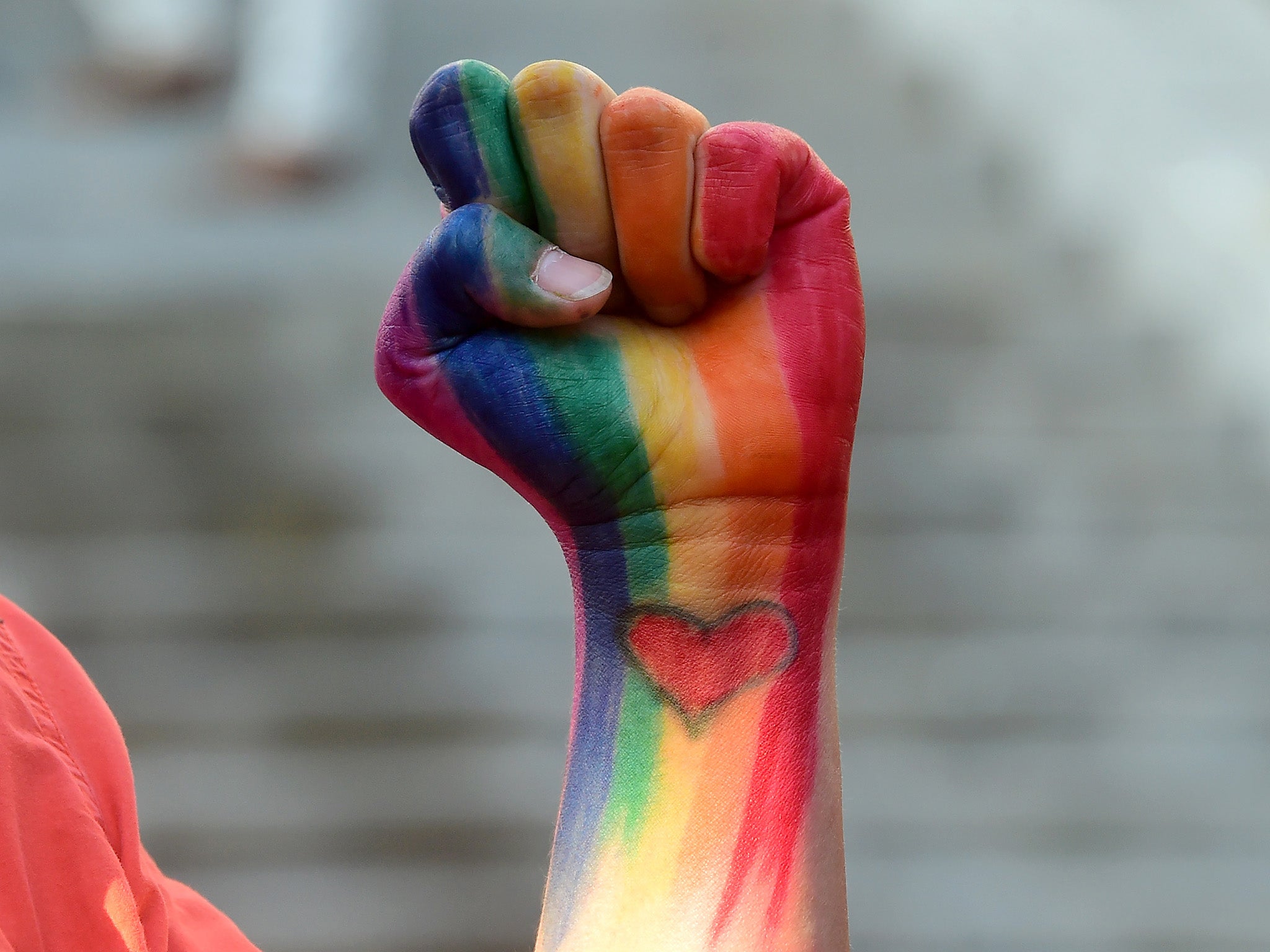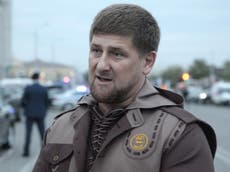Silence is not good enough when gay men are suffering in Chechnyan 'concentration camps'
All too often, Western governments seek to absolve themselves of responsibility for fear of offending cultural sensitivities. This attitude cannot continue when people's lives are at risk


We have come to expect the unexpected and take nothing for granted in this era of Trump, Brexit and the rise of the so-called “alt-right”. The hypocrisy of Theresa May proudly boasting of her Christian values while traversing the Middle East reinforcing trade links with some of the worst human rights abusers on the planet is incredible and tragically predictable in equal measure. May personifies the kind of selective morality that renders world leaders mute on issues of basic equality when speaking out would, by anyone’s standards, be the right thing to do.
This week, reports emerged from Chechnya of a systematic campaign of violence directed specifically at gay men (and, presumably, also bisexual men). Russian media and Amnesty International warn that those deemed “undesirable” by the authorities are being subjected to “preventive mopping up”, followed by arbitrary detention, torture and, in some cases, death at the hands of the police.
Chechen Leader, Ramzan Kadyrov, denies the accusations, asserting that gay men do not exist in his country, a claim reminiscent of ex-Iranian president Mahmoud Ahmadinejad’s similarly spurious postulations.
However, while social media bristles in utter disbelief at the suggestion of the existence of “concentration camps” for men who have sex with men in the restive Russian republic, world leaders, including our own, have been remarkably silent.
In fact, when it comes to LGBT rights, it seems that we are happy to bask in the glory of the progress we have made at home (where, incidentally, recent examples of violence perpetrated against LGBT people show that the battle is far from over), while turning a blind eye to the plight of those in countries where belonging to a sexual/gender minority group amounts to a daily fight for basic survival.
Admittedly, western countries do have to tread a careful path in this regard. In advocating for global equality for lesbian, gay, bi and trans people, we are constantly mindful of some inconvenient truths: first, that European colonial powers were the primary exporters of the kind of virulent homophobia that persists in countless countries, including a great many Commonwealth member states.
Neither can we conveniently ignore the role played by American evangelical missionary organisations in sowing the seeds of hate the length and breadth of sub-Saharan Africa, nor our own abject failure to consistently treat LGBT asylum seekers with the respect and dignity they deserve and so desperately need.
None of this, though, releases our leaders from their duty to speak out against the kind of open state-sponsored brutality currently being meted out in the North Caucasus. This week’s G7 summit was the ideal platform on which to do just that while simultaneously applying diplomatic pressure on Russia to intervene.
All too often, western governments seek to absolve themselves of responsibility for lobbying on behalf of LGBT people abroad for fear of offending religious or cultural sensitivities. This kind of cultural relativism cannot and must not apply to basic matters of human equality and dignity. Accepting as inevitable the gulf between the socio-legal standing of LGBT people in various parts of the world is the ultimate mark of unfettered privilege.
Intensive political lobbying on the part of governments, combined with effective support for LGBT rights organisations “on the ground” would be a good starting point. The bottom line is this; the world should have learned the lessons of failing to act until it is too late when a certain community finds itself the focus of collective erasure, detention, violence and murder.
Let’s hope that history does not repeat itself in Chechnya. The repercussions could be devastating.



Join our commenting forum
Join thought-provoking conversations, follow other Independent readers and see their replies